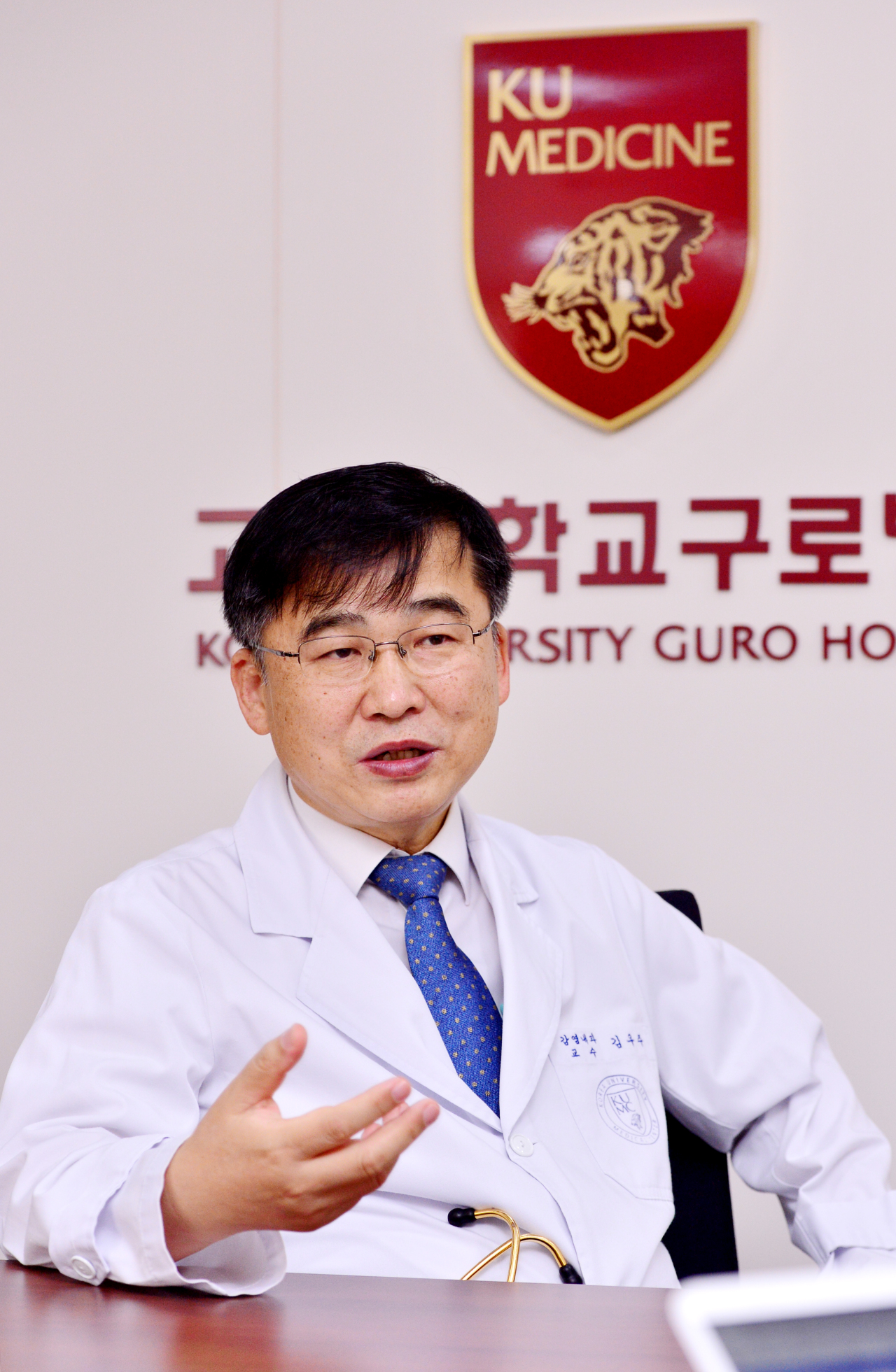[Herald Interview] Korea’s top infectious disease expert calls COVID-19 ‘trickiest foe yet’
By Kim ArinPublished : June 17, 2020 - 18:15

When it comes to epidemics, it’s hard to find someone with a bulkier resume. From severe acute respiratory syndrome to swine flu to Middle East respiratory syndrome, he was there at the front lines of each alarming outbreak that has surfaced in recent decades, either advising or spearheading South Korea’s response.
Dr. Kim Woo-joo, the nation’s leading expert in infectious diseases, said the novel coronavirus that causes COVID-19 has been his “trickiest foe yet.”
“The new coronavirus rattled the world in a matter of months. It makes MERS look rather less menacing.”
When MERS was spreading here in summer 2015, he led the response committee within the Korea Centers for Disease Control and Prevention until all active cases were stamped out. With Kim at the helm of emergency management, the national health agency set up the virus-tracking programs that have received renewed acclaim in the age of COVID-19.
He also acted as the “explainer in chief,” communicating to the public concerning the disease and giving the health officials and decision-makers advice on what needed to be done.
But when Kim tried to warn about the virus before it struck Korea, he said he was not heeded.
“MERS had already infected and killed hundreds globally (by late 2014). I said we needed to take action in advance because someone was bound to arrive infected.”
Little attention had been paid and it was not long until his worries proved prescient. He said this has often been his experience as a public health doctor.
In 2008, Kim argued Korea should procure a stockpile of flu antivirals and vaccines enough to cover at least 20 percent of the population. His anticipation did not go amiss -- when the swine flu pandemic hit the next year, Korea suffered from a shortage of vaccines.
The influenza vaccine he developed with pharmaceutical company Green Cross at the time helped alleviate the country’s dependency on imports for the vaccine supply.
Infection specialists fight a lonely battle bracing for future risks of diseases caused by emerging viruses.
“When preparations fail to stand up to approaching threats, you will be blamed for inaction. But when preparations are done well and prove effective in guarding against the disease, people will accuse you of exaggerating and scaremongering,” he said.
Once the disease subsides and life returns to normal, the deadly legacies are easily forgotten and lessons go repeatedly unlearned.
He said how COVID-19 unfolded was eerily reminiscent of SARS in 2003.
“SARS, like COVID-19, first appeared in southern China. There was delay in sharing that information with the rest of the world, which in turn jeopardized global health security,” he said, adding, this is where the World Health Organization had a role.
“Countries need to be held accountable for withholding such information, and only the WHO is in a position to do that.”
As international travel becomes increasingly common, viruses are constantly being imported and exported, he said, placing the world in a more vulnerable state to infectious diseases.
“There’s a shared responsibility for health surveillance and disease control.”
He said what the new contagious diseases have in common is that they have spilled over from animals to humans, and that human intrusions into wildlife were giving rise to such cross-species leaps.
And COVID-19 will likely not be the last pandemic of our times.
Kim said if the last century was plagued by pandemics caused by influenza, this century will see ones arising from both influenza and coronaviruses.
While Korea was great at the so-called 3Ts -- test, trace and treat -- vaccines and cures were what would ultimately rein in the virus, he said.
On the Health Ministry timeline of creating a Korea-made cure by the year’s end, and a vaccine by next year, he said they were “ambitious goals.” Kim, who is currently working on three COVID-19 drug repurposing projects, said he wouldn’t count on having a treatment available by the ministry-set deadline.
He warned the next wave could be precipitated by a lack of physical distancing, referring to relaxation of controls in early May to balance economy. While many experts, including those at the KCDC, have predicted a big wave of infections in the fall, a summertime wave was not improbable, he said.
Conflicting messages from the government and the disease control agency were something “all too familiar,” he said.
After the MERS outbreak subsided, Kim said he declined the then-administration’s request to lead the KCDC, mainly because he was exhausted from finding himself mired in “bureaucratic situations.”
“Health emergencies are a time for politics to take a backseat,” he said.
“Some countries went into complete lockdowns, closed their borders, while others opted for resuming normalcy in what is known as the herd immunity strategy. Korea, I think, is taking the middle road.”
Continuing, he said, “Until the pandemic is over, there is no way of knowing what the ‘right way’ is in fighting the disease. Economy is important, but when all is said and done, the benchmarks that matter will be how successful governments have been in keeping people alive and safe.”
By Kim Arin (arin@heraldcorp.com)










![[Today’s K-pop] BTS pop-up event to come to Seoul](http://res.heraldm.com/phpwas/restmb_idxmake.php?idx=644&simg=/content/image/2024/04/17/20240417050734_0.jpg&u=)






![[KH Explains] Hyundai's full hybrid edge to pay off amid slow transition to pure EVs](http://res.heraldm.com/phpwas/restmb_idxmake.php?idx=652&simg=/content/image/2024/04/18/20240418050645_0.jpg&u=20240419100350)

